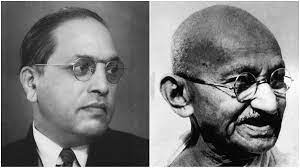The Communal Award was a significant proposal put forth by British Prime Minister Ramsay MacDonald in August 1932 as an attempt to resolve the political deadlock between the Indian National Congress and the British government. The proposal aimed to grant separate electorates to various religious and minority groups in India, including Muslims, Sikhs, Christians, Anglo-Indians, and Dalits.

At the time, India was facing increasing unrest, with the Indian National Congress demanding greater self-government and the British government struggling to maintain control. The Communal Award was seen as a solution to the political deadlock, as it aimed to give greater representation to various communities and provide a framework for fair political representation.
However, the Communal Award was controversial, as it was seen by some as reinforcing religious and communal divisions in Indian society. Mahatma Gandhi, who had been leading a non-cooperation movement against the British government, launched a hunger strike in protest against the Communal Award. Gandhi argued that the proposal would divide India along religious and communal lines and exacerbate existing tensions.
Despite the controversy, negotiations between Indian political leaders and the British government resulted in the Poona Pact of September 1932. The Poona Pact provided for separate electorates for the Dalits but abolished them for other religious minorities. This compromise helped to resolve the deadlock in Indian politics and paved the way for the Government of India Act of 1935, which established provincial autonomy in India.
The Communal Award is significant because it marked a turning point in India’s struggle for self-government. It highlighted the challenges of balancing diverse interests in a multiethnic and multicultural society and the importance of finding a political solution that would benefit all communities. The Communal Award also demonstrated the power of peaceful resistance and negotiation in achieving political change.
In conclusion, the Communal Award was a proposal put forth by British Prime Minister Ramsay MacDonald in August 1932, aimed at resolving the political deadlock between the Indian National Congress and the British government. Although the proposal was controversial and faced opposition from various groups, negotiations between Indian political leaders and the British government resulted in the Poona Pact, which helped pave the way for greater autonomy for India. The Communal Award remains an important moment in India’s struggle for self-government and a reminder of the challenges of balancing diverse interests in a multicultural society.
Important Links